
In a Nova Scotia research lab, the last hope for an ancient fish species
Racing against time, dwindling habitat and warming waters, scientists are trying to give this little-known...
Eight American senators have written to B.C. Premier John Horgan urging him to address downstream contamination from the province’s metal and coal mines.
The letter — an unprecedented joint undertaking from all senators from the four states bordering the province, including both Republicans and Democrats — outlines concerns about potential environmental and economic impacts from B.C. mines that pollute rivers flowing into the U.S.
“As you know, Alaska, Washington, Idaho and Montana have tremendous natural resources that need to be protected against impacts from B.C. hard rock and coal-mining activities near the headwaters of shared rivers, many of which support environmentally and economically significant salmon populations,” the senators wrote in the two-page letter, released Thursday.
They noted that Indigenous peoples — “whose lands are affected by past, present and proposed mines near transboundary rivers” — have also voiced concerns and have asked governments on both sides of the border to undertake cumulative assessments of the impacts B.C. mines have on communities as well as on cultural and natural resources.
“These transboundary watersheds support critical water supply, recreation opportunities and wildlife habitat that support many livelihoods in local communities,” the senators wrote to Horgan, saying they are concerned about the lack of oversight of Canadian mining projects near multiple transboundary rivers that originate in B.C.
The senators also referenced the need for binding international protections that would bring B.C.’s mining laws in line with laws in the U.S.
Jen Holmwood, Horgan’s deputy communications director and press secretary, said the premier was travelling back from Europe and had not seen the letter, which was received in his office Thursday morning. She referred questions from The Narwhal to B.C.’s ministry of energy, mines and petroleum resources.
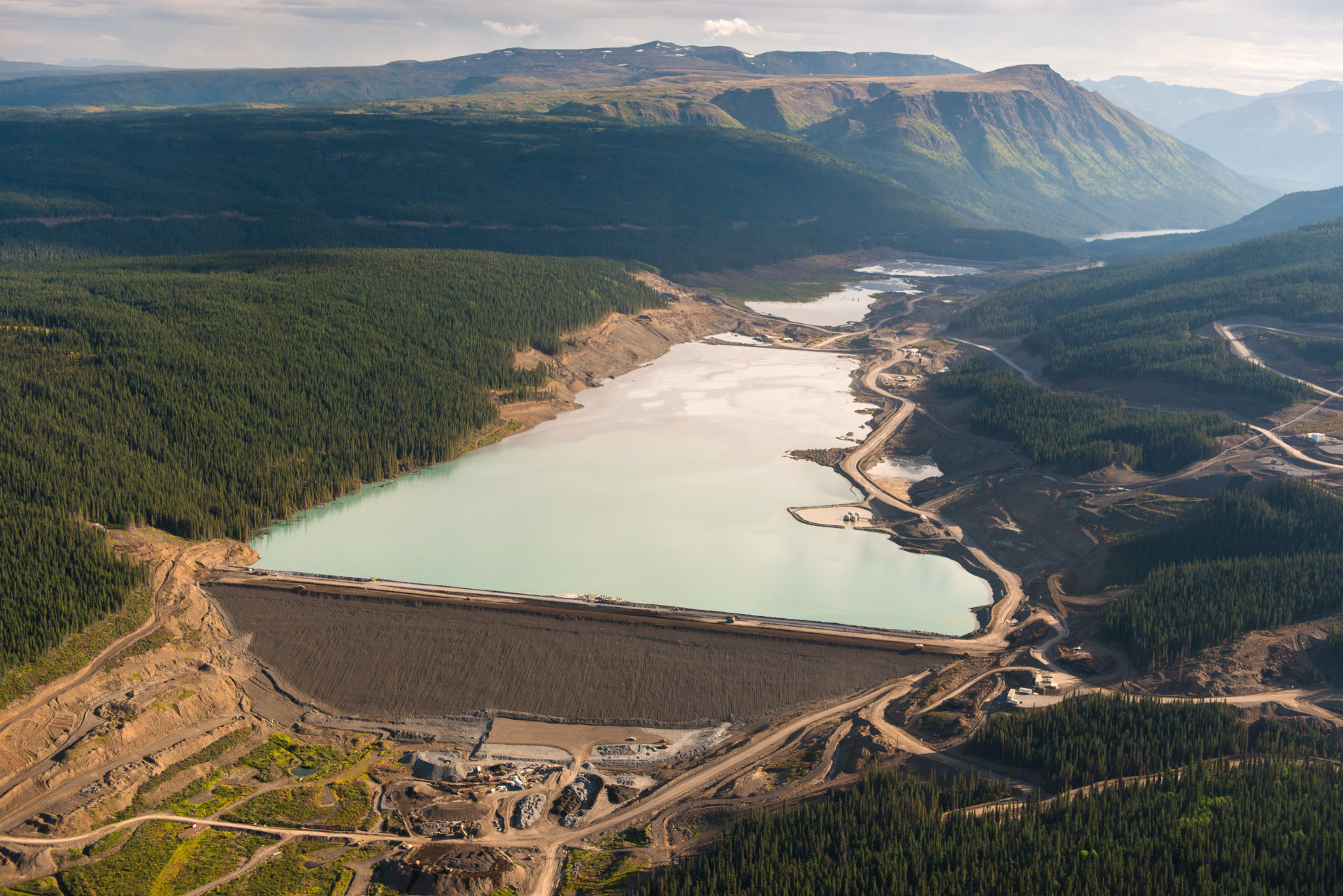
Imperial Metals’ Red Chris mine tailings pond in northwest B.C. Photo: Garth Lenz / The Narwhal
The senators’ letter is the latest and most high-profile attempt from the U.S. to prod B.C. into cleaning up its mining act.
B.C. mines have been fouling rivers that flow into the U.S. for decades with contaminants such as acid rock drainage. Selenium from Teck Resources’ Elk Valley coal mines, which share a watershed with Idaho and Montana, has killed and deformed fish, threatening native trout and Kootenai River white sturgeon.
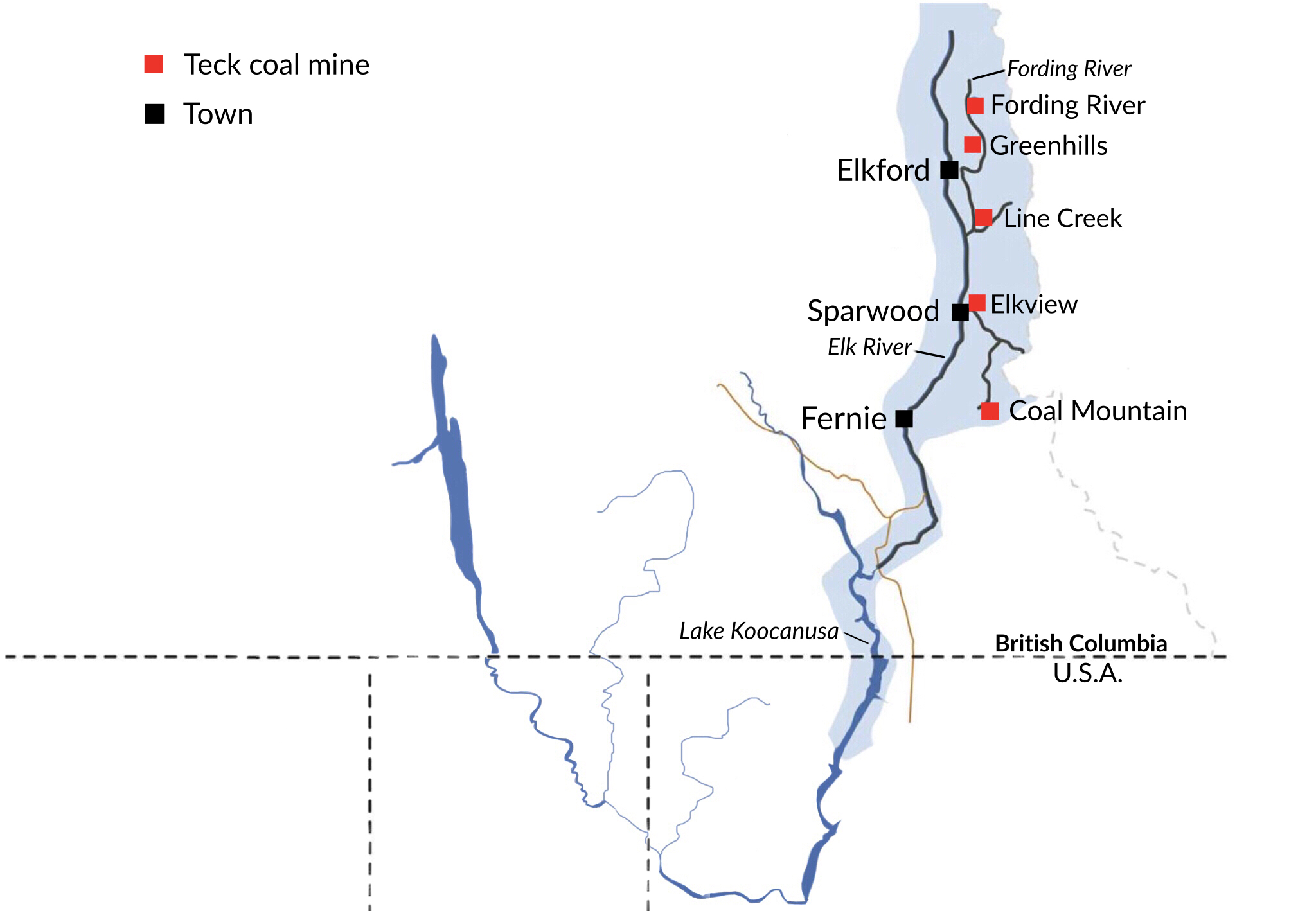
Teck’s five metallurgical coal mines are all upstream of the transboundary Koocanusa Reservoir. Map: Carol Linnitt / The Narwhal
“The United States is not a settling pond for Teck Resources and the rest of Canada’s mining industry,” said former Kootenai River fishing guide Mike Rooney in a statement released Thursday by the three U.S. conservation groups — Salmon Beyond Borders, National Parks Conservation Association and Headwaters Montana — who sent the senators’ letter to media on both sides of the border.
Rooney urged Horgan and U.S. Secretary of State Mike Pompeo to act “to protect our businesses, resources and citizens” by requesting intervention under the 1909 Boundary Waters Treaty.
“Anything less is not the solution this international problem deserves,” Rooney wrote.
The Boundary Waters Treaty aims to prevent and resolve disputes over the use of waters shared by Canada and the U.S.
Indigenous peoples have also asked the U.S. and Canadian governments to enforce the Boundary Waters Treaty.
The Southeast Alaska Indigenous Transboundary Commission commended the senators’ letter in a media statement, saying that Canada and the U.S. face “an international problem requiring international solutions.”
“The U.S. and B.C. must work vigilantly together to protect our lands and precious watersheds,” the commission said. The commission is comprised of 15 federally recognized Tribes of Southeast Alaska whose mission is to create a unified voice for Indigenous peoples across the international border who are facing impacts from development and industrialization.
Under the Boundary Waters Treaty, the U.S. and Canadian federal governments can bring disputes to the International Joint Commission, which has resolved more than 100 matters over the last century.
In their letter, the senators informed Horgan that the International Joint Commission did not convene in April for its usual meeting because it lacked a quorum. The senators noted that discussions about transboundary water issues generally occur at the commission’s annual meeting, regretting the “absence of engagement” this year.
Without the International Joint Commission, “mining companies have been partying like it’s 1909,” said Southeast Alaska Indigenous Transboundary Commission chair Rob Sanderson Jr., a vice-president on the Tlingit & Haida Indian Tribes of Alaska’s executive council.
Last July, U.S. representatives on the commission accused Canadian commissioners of suppressing data on coal mining pollution flowing from B.C.’s Elk Valley into Montana.
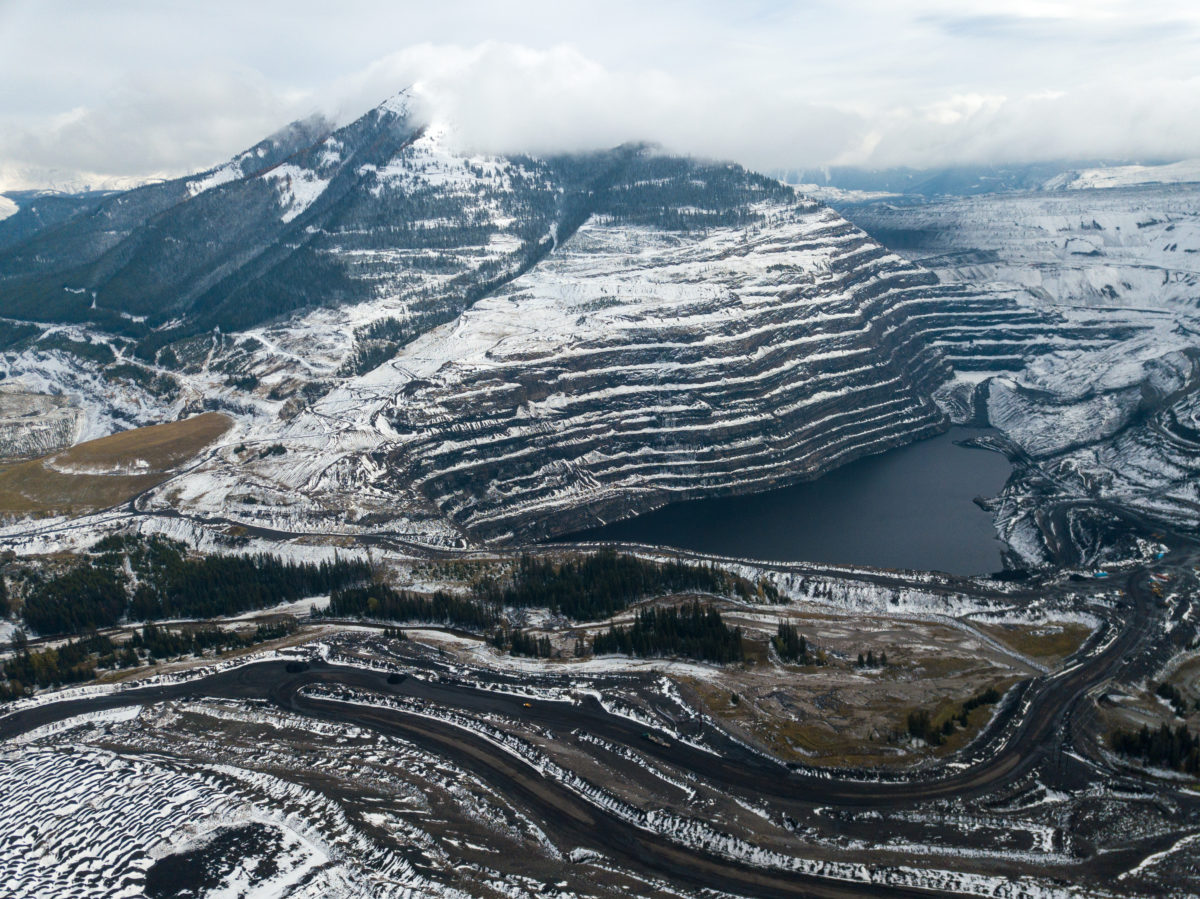
A metallurgical coal mine, owned and operated by Teck Resources in B.C.’s Elk Valley. Photo: Jayce Hawkins / The Narwhal
Alaska has expressed concern for years about B.C. mines
Both the Southeast Alaska Indigenous Transboundary Commission and the three conservation groups pointed to the Tulsequah Chief mine, which for more than six decades has been discharging acid mine drainage into the transboundary salmon-bearing Taku River, which drains into Taku Inlet near Juneau, Alaska.
The commission alleged that the mine has been violating the international treaty for decades.
“We seek permanent protections from future disaster,” the commission said.
B.C.’s mining industry has a troubled reputation within the province as well.
In May, more than 30 groups released a report aimed at updating B.C.’s ‘archaic’ mining laws, saying reforms are required to address the ticking time bomb of abandoned mines and to protect taxpayers from millions of dollars in liabilities.
In August, 2014, a tailings pond full of toxic copper and gold mining waste breached at the Mount Polley mine
in the central B.C., spilling an estimated 25 billion litres of contaminated materials into Polley Lake, Hazeltine Creek and Quesnel Lake, a source of drinking water and major spawning grounds for sockeye salmon.
No charges or fines have been laid in response to the disaster.
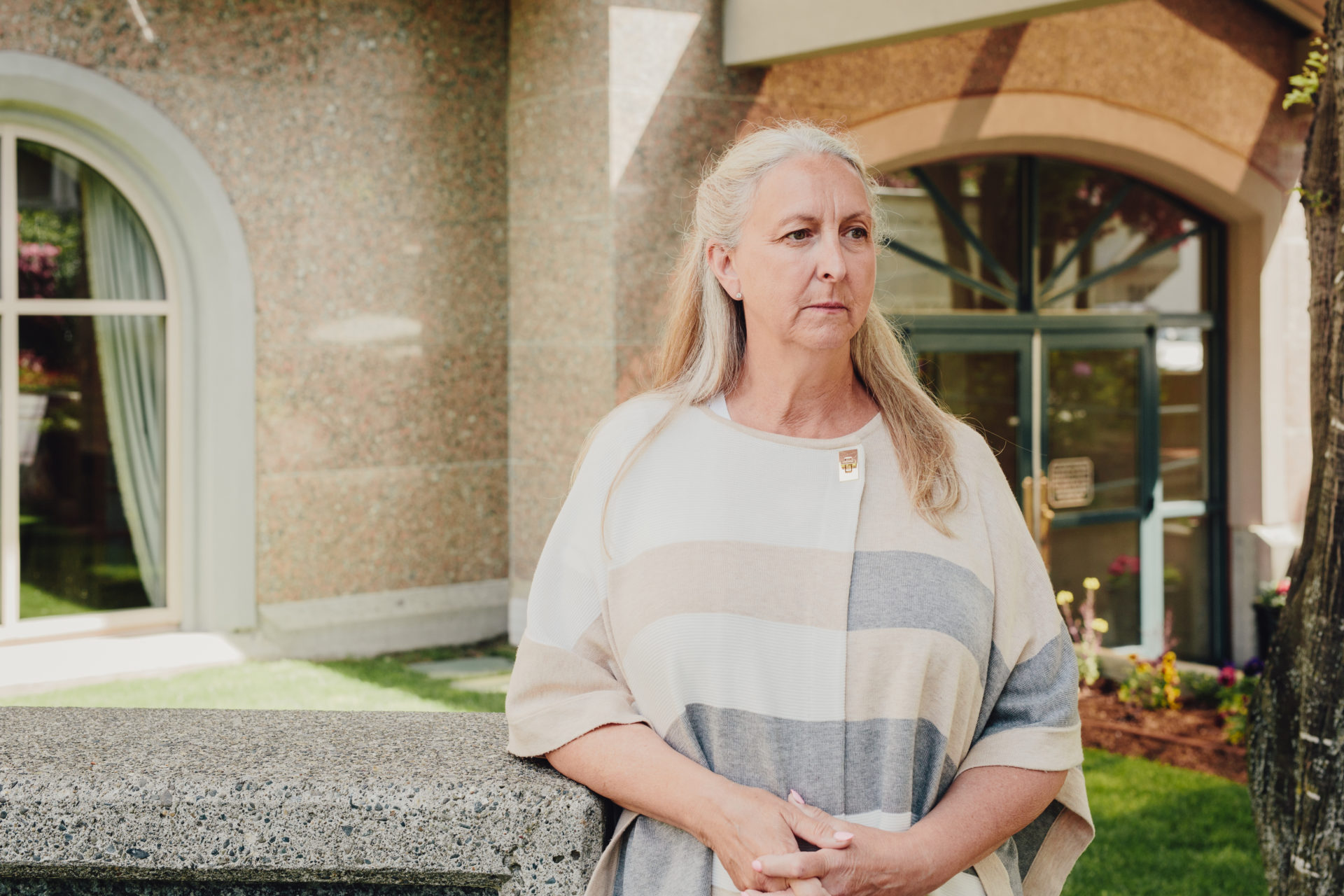
Christine McLean of the Concerned Citizens of Quesnel Lake launched an appeal against the Mount Polley mine being given a permit to pipe effluent into Quesnel Lake after the Mount Polley disaster. Photo: Taylor Roades / The Narwhal
Alaska Republican senator Lisa Murkowski said in a media statement that the letter to Horgan follows multiple letters the Alaska delegation has sent over the past five years to the U.S. Department of State “expressing concerns about B.C. mining practices and potential downstream effects on U.S. resources and livelihoods.”
“This letter [to Horgan] shows solidarity from our states and calls for greater protections for our transboundary watersheds,” Murkowski wrote in a statement she posted Thursday on her website.
“Reforms that ensure mining projects in British Columbia don’t impact Southeast Alaska are essential to protecting our way of life, and must include a system of financial assurances to assure sustained protections of vulnerable natural resources,” she wrote.
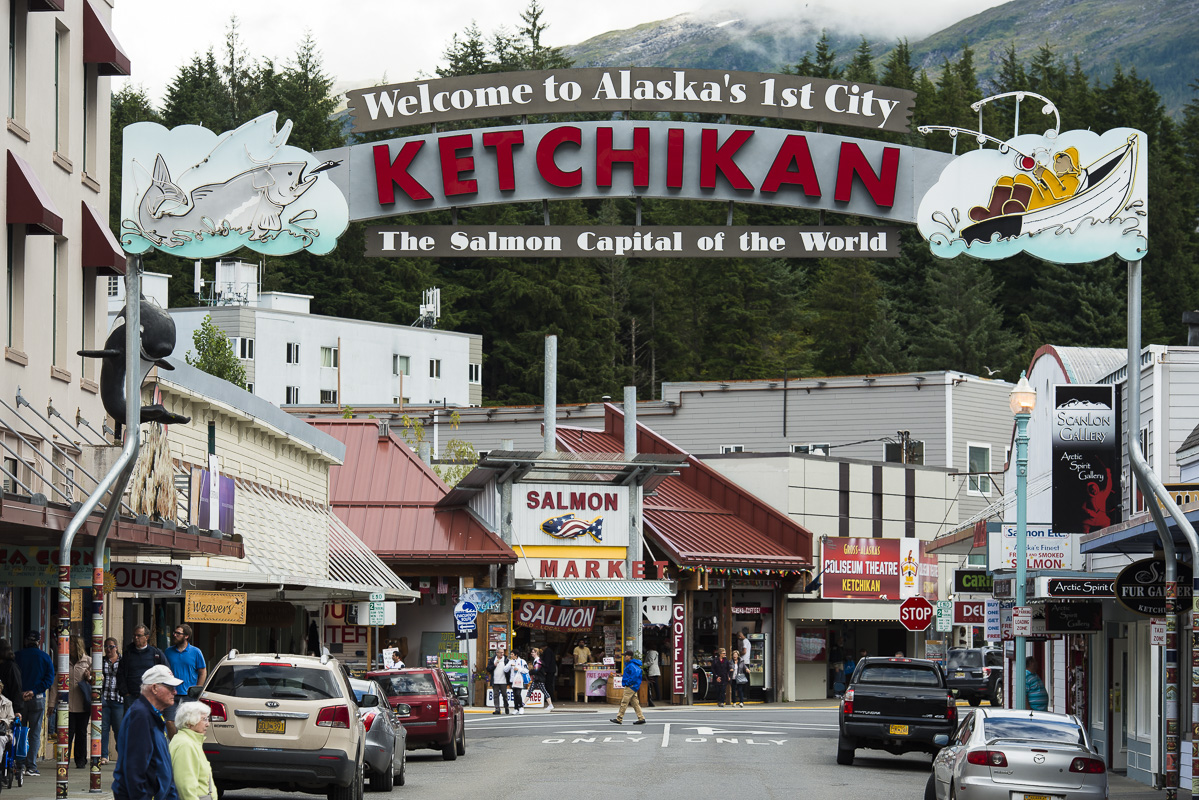
Ketchikan, Alaska, which calls itself the “salmon capital of the world” is downstream of several B.C. mines. Photo: Garth Lenz / The Narwhal
Alaska Repulican Senator Dan Sullivan said he has been working with Canadian counterparts for several years — at local, provincial and federal levels — to raise awareness and concern about potential impacts posed by B.C. mining development to streams that flow across the border into Alaska’s southeast communities and waters.
“While we need to continue these discussions with our partners to the east, we also need to begin putting forward concrete steps that will ensure that all British Columbian mining projects have the level of oversight, monitoring, financial assurances and mitigation planning necessary to protect Alaska’s world-class fishery resources in [the] southeast,” Sullivan said in a joint statement with Murkowski.
The conservation groups also noted that B.C. government is considering a contentious proposal from Imperial Metals to mine the headwaters of the Skagit River, the most important salmon river in Seattle’s Puget Sound area.
“U.S. taxpayers have spent billions of dollars restoring these rivers and fisheries,” stated Salmon Beyond Borders director Jill Weitz. “It would be a tragedy to have that investment undone by B.C. mining contamination.”
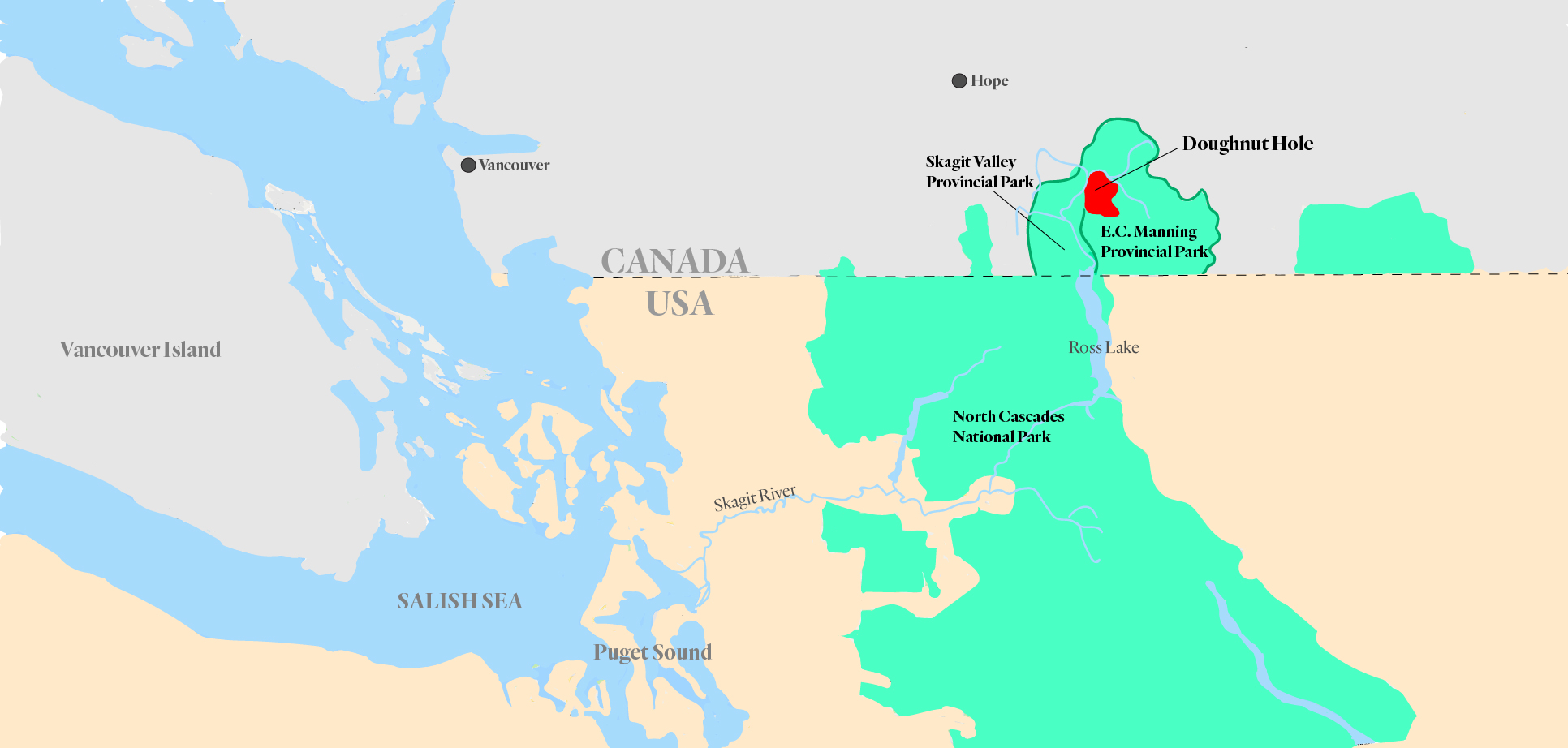
Map showing the location of the ‘Doughnut Hole’ between Skagit Valley and Manning provincial parks. The Doughnut Hole lies within the headwaters of the Skagit River. Map: Carol Linnitt / The Narwhal
The senators told Horgan they are concerned about the “lack of oversight” of Canadian mining projects near multiple transboundary rivers that originate in B.C. and flow into the four states they represent. They said they have partnered with federal and state governments to improve water quality monitoring and to push for “constructive engagement” with Canada.
“We hope to encourage you, in your role as Premier, to allocate similar attention, engagement and resources to collaborative management of our shared transboundary watershed,” the senators wrote.
Among other U.S. initiatives outlined by the senators are the establishment of an interagency working group in 2017 — by the State Department, the Department of the Interior and the Environmental Protection Agency — to address concerns regarding B.C.’s mining activity in transboundary watersheds and “to determine the specific mechanisms necessary to safeguard U.S. economic interests and resources.”
The U.S. Congress has also allocated US $1.8 million to the Department of the Interior for stream gauges that will provide better monitoring and water quality data at the international boundary, “including detection of any impacts from upstream mining.”
Additionally, the senators note that in April 2018, the U.S. State Department presented concerns and opportunities for collaboration to Global Affairs Canada to forge a stronger decision-making process regarding mining impacts in shared transboundary watersheds, to address the “insufficient” scoping and evaluation of past, present and future mining impacts and to ensure the use of “objective, transparent” data collection and monitoring.
Congress has directed the U.S. government to increase its work with federal, state, tribal and local partners, including local elected officials, to monitor and reduce contaminants in transboundary watersheds, the senators told Horgan.
“We have both an opportunity and a responsibility to better manage our critical shared resources in a cooperative, constructive manner,” the senators wrote. In their letter, they also requested Horgan’s “direct engagement” on the issue and asked the premier to engage in dedicated efforts to monitor transboundary water quality.
The energy ministry told The Narwhal that B.C. is “committed to working closely with our transboundary neighbours to protect and enhance our shared environment and waterways.”
In an emailed statement, the ministry also noted that “Alaska is much involved in the assessment and permitting of existing and proposed mines in the transboundary watersheds,” such as the Red Chris, Brucejack and Red Mountain mines.
Get the inside scoop on The Narwhal’s environment and climate reporting by signing up for our free newsletter. On March 17, federal Conservative Leader Pierre Poilievre...
Continue reading
Racing against time, dwindling habitat and warming waters, scientists are trying to give this little-known...

From investigative reporting to stunning photography, we’ve been recognized with four 2024 CAJ Awards nods...

The Narwhal is expanding its reach on video platforms like YouTube and TikTok. First up?...
